"Infinite Dignity" in Selma, Alabama
by Bishop Joensen | May 15, 2024
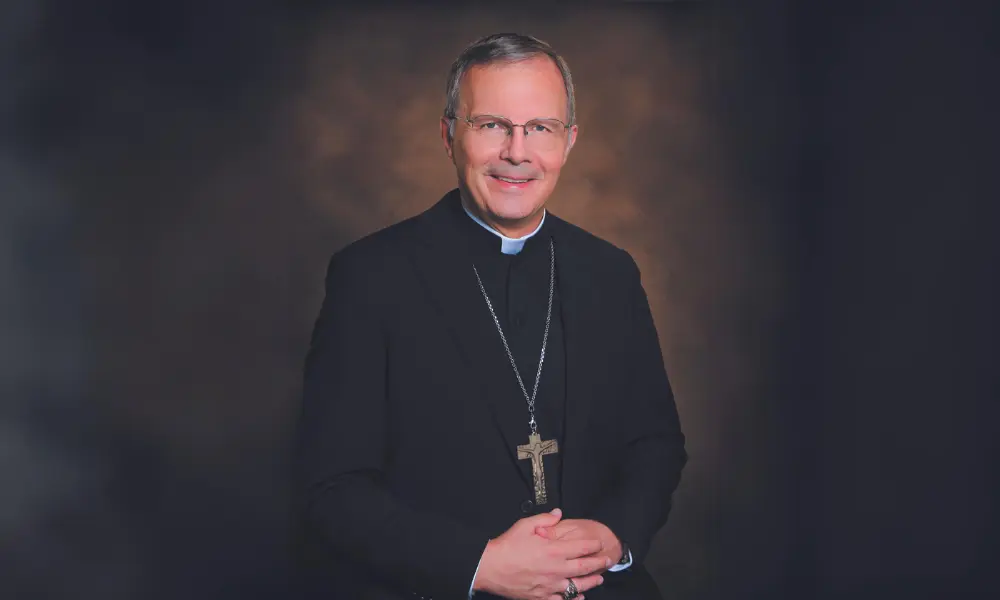
In last month’s column I introduced the heralded document, “Infinite Dignity,” (hereafter identified as ‘DI’) released by the Vatican this past April 2, which happens to be the death anniversary of the apostle of life, St. John Paul II; it also follows the 75th anniversary of the United Nations Declaration of Human Rights. DI situates the recognition of the ultimate value and worth of every human being simply by virtue of holding membership in the human species. It traces the awareness of the immense goodness each human being possesses and distinct part he or she is to play in society—by nature and by grace.
We are all meant to participate here-and-now in the communion of saints-in-the-making, each with the vocation to one day see God face-to-face. Our personal history is woven into a social history that by God’s design is ultimately the history of salvation. Pope Francis is cited: “Human beings have the same inviolable dignity in every age of history, and no one can consider himself or herself authorized by particular situations to deny this conviction or to act against it” (DI n. 6).

Tragically, human history is rife with insults and gross denials of human dignity that are recounted in DI. After first recalling the catalogue of human rights violations identified both in Vatican II’s “Pastoral Constitution on the Church in the Modern World” and echoed in St. John Paul’s “Gospel of Life,” there are few surprises in the list of violations DI details: extreme poverty, war, the disregard for migrants, human trafficking, sexual abuse, violence against women, abortion, surrogacy, euthanasia and assisted suicide, marginalization of people with disabilities, contemporary gender theory and sex change, and digital violence.
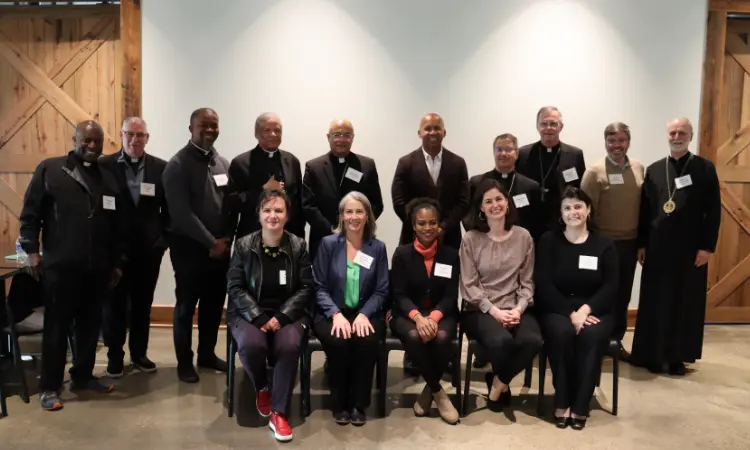
As promised last month, I would like to focus upon the practice of slavery in our country both as a historical fact and lingering affliction that affects our contemporary culture and consciousness. I previously mentioned that just before this past Holy Week, I participated in a “Bishops’ Lenten Experience” with five bishops and others on a pilgrimage of prayer and encounter in the cities of Montgomery and Selma, Alabama. There we traced the sobering, sordid legacy of slavery and racism in our country that has left us with deep-seated wounds and soul-searing matter for reflection. We confronted the gains and ongoing gaps in social justice (particularly in connection with current criminal justice practices). We were also spurred to honestly face how our Church has responded—in ways both repugnant and redemptive—over the past 150 years in particular.
Our Alabama experience vividly revealed the horrendous scope of evil that spilled onto the shores of the American continent through the slave trade organized by largely Catholic Christian European countries. This is a history that should be familiar to every schoolkid and adult in our country, but can be easily relegated to the dustbin of the past or dismissed as the resurgent rants of “woke” consciousness.
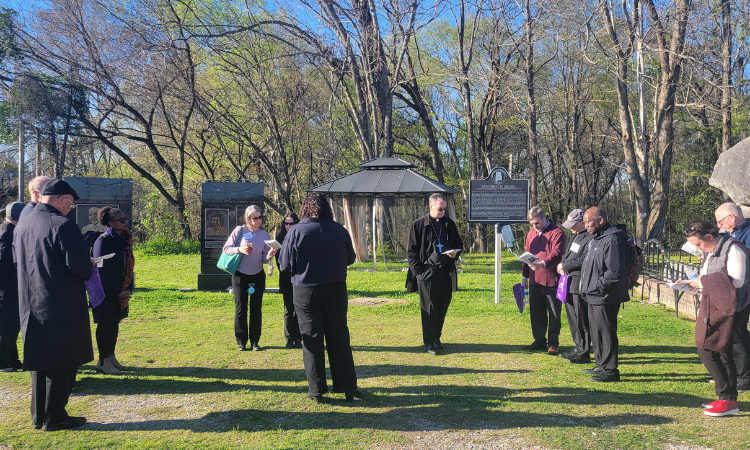
Our guides, Bishop Joseph Perry of Chicago and Archbishop Shelton Fabre of Louisville, led us in prayer and reflection surrounding our visits to the Legacy Museum, the National Memorial for Peace and Justice, the Freedom Monument Sculpture Park, the former home of Rev. Dr. Martin Luther King Jr.’s family as he pastored what is now the Dexter Avenue King Memorial Baptist Church.
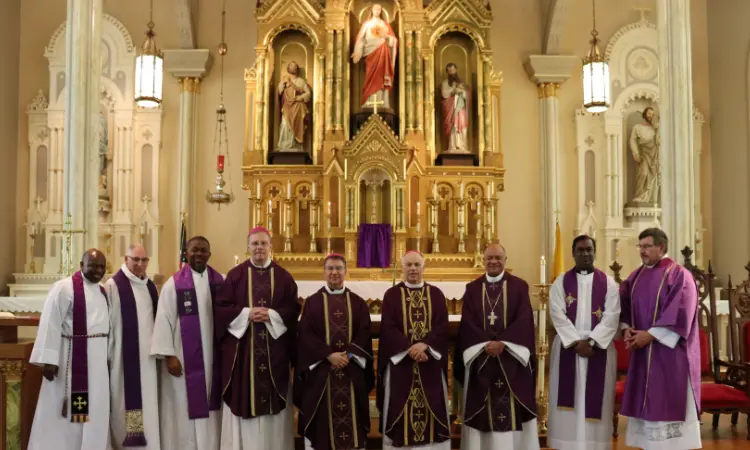
We also celebrated Mass and toured the City of St. Jude, now a predominantly Black Catholic parish on the outskirts of Montgomery. The St. Jude complex was originally founded by Passionist Father Harold Purcell as part of his inspiration to provide education and health care ministries to Southern Black communities. We visited the complex of human services and spiritual formation at the Edmundite Mission in Selma that is impressively thriving to this day.

We engaged Ms. JoAnn Bland, a survivor of the 1965 civil rights march from Selma to Montgomery (where participants had their own “passover” through the Bloody Sunday atrocities near the Edmund Pettis bridge) and traced the path of this famous march.

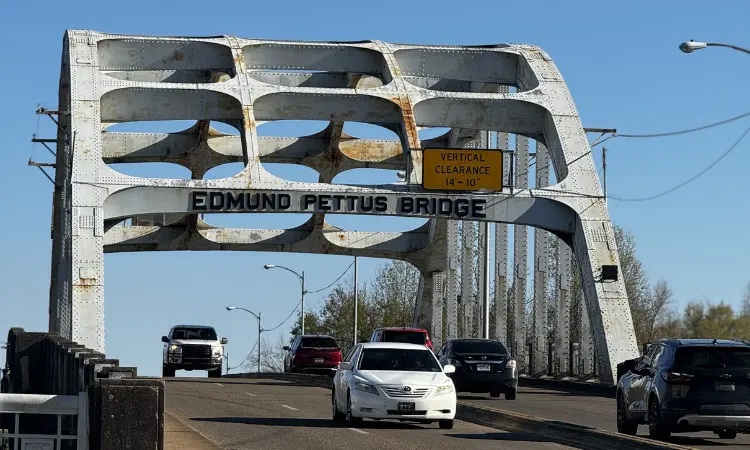
The most compelling images that will remain etched in my consciousness were supplied at the site where we began our two-and-a-half days together: the Legacy Museum. Here we were graphically confronted with the “wave” of 12 million slaves captured in Africa (two million of whom perished at sea in ships en route). We followed the plaintive cries of children wrenched from their parents and spouses from one another by slave traders once they landed.
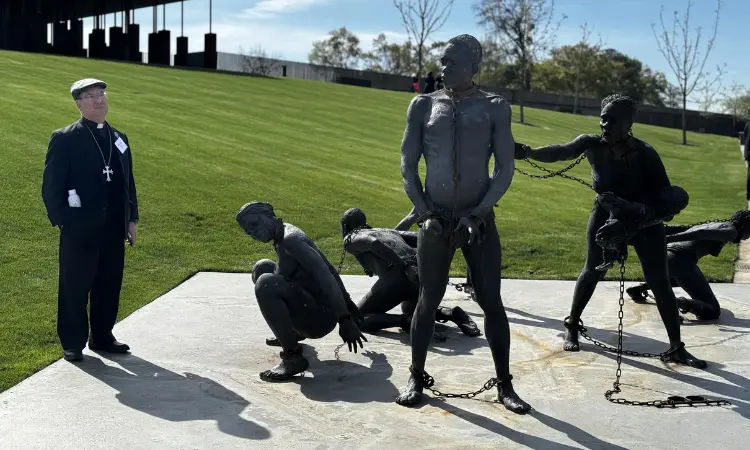
In silence, we pondered what seemed to resemble a columbarium of cremated remains, an array of soil gathered in hundreds of apothecary jars drawn a corresponding number of lynching sites. Following the Civil War, for more than half a century it was not uncommon in communities through the South and Midwest for church-going white folk, including women and children, to gather for the public spectacle of beatings, burnings, lynchings and dismemberment of mostly Black men.
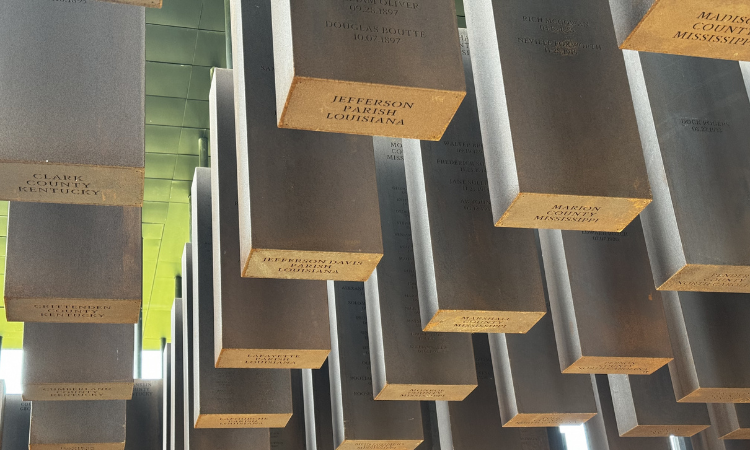
We read the personal pleas composed by some of these victims who prior to their mob execution experienced their own Garden of Olives moments crying out for mercy and deliverance from their Creator--to no avail. I can only liken the emotions I experienced to the times I have accompanied young adults as a priest chaplain touring the Nazi death camps at Auschwitz.

My friend and brother bishop who chairs the U.S. Conference of Catholic Bishops’ Committee for Domestic Justice and Human Development, Ukrainian Archbishop Borys Gudziak of Philadelphia, has witnessed firsthand the atrocities committed by Russian soldiers in Ukraine. He commented after our visit to the Legacy Museum: “I found it not easy to fall asleep after this experience. It is imperative that every American become acquainted with this history; it is a history that every American needs to know.”
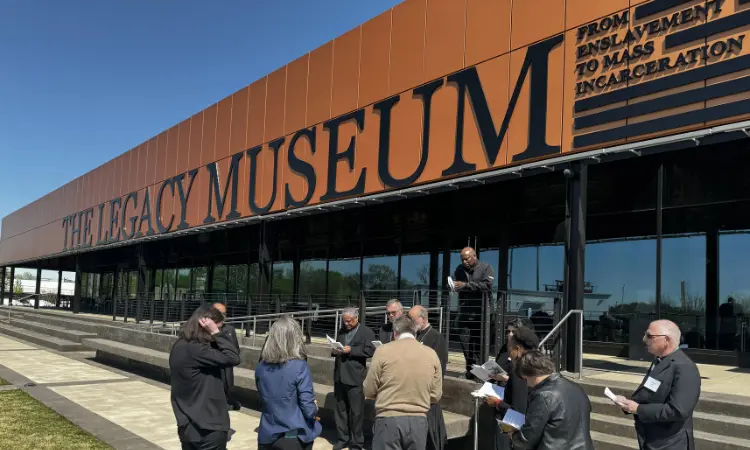
The trajectory of our pilgrimage was not intended to leave us wallowing in remorse or self-recrimination; it was meant to foster awareness of how the residue of racism has been translated into policies and practices in our criminal legal system. Our conversation with the founder of the Equal Justice Initiative and author of Just Mercy, attorney Bryan Stevenson, reminded me of Pope Francis’ adage, “All it takes is one good person to restore hope.”
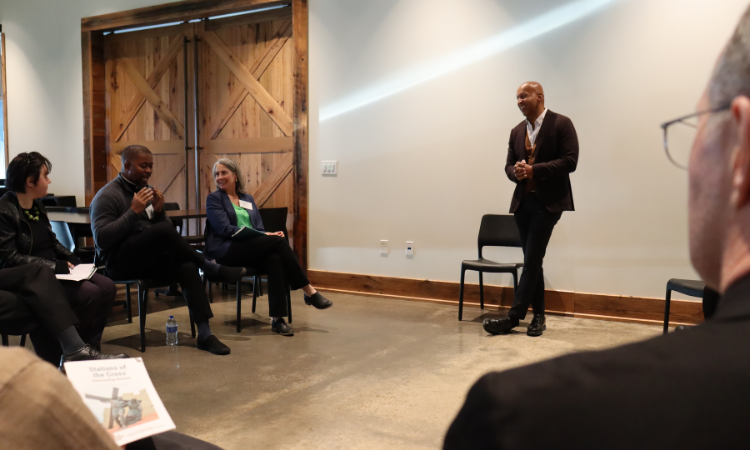
For me, some concrete action steps that I intend to pursue following our late Lenten pilgrimage to Alabama are (1) do more concerted advocacy for an end to the federal death penalty; and (2) through the agency of the Iowa Catholic Conference, work for restorative justice practices to be adopted in our criminal justice system and inscribed by legislation that frames these practices. If you are interested in learning more about the latter, I commend your participation in the “Introduction to Restorative Justice” virtual session sponsored by the Catholic Mobilizing Network on June 17.
As a Diocese, we will also collaborate with Pastor Jonathan Whitfield of Corinthian Baptist Church in Des Moines, who has secured a grant to analyze and respond to “environmental injustice.” This form of injustice occurs when persons of color and other vulnerable persons suffer inordinately long-term effects in terms of housing and economic impact from weather-related and other natural disasters—including the recent spate of tornadoes that struck our state.
The cynic might wag his tongue and say, “Oh, Bishop Joensen is now woke.” I would respond: the Spirit of truth promised by the Risen and Ascended Lord both convicts and calls us to ever clearer vision through the experiences God affords us. The Spirit stirs us to more ardent advocacy in recognition of past abuses of human dignity that may have receded, but continue to taint our perceptions and social practices. As DI concludes, “In political activity, we should remember that ‘every person is immensely holy and deserves our love and dedication’” (DI n. 65 citing Pope Francis, Fratelli tutti, n. 195).
Personally, as one who desires to be a champion of human dignity and pastor of souls, any “conversion” I experienced should advance my own agency as a minister of reconciliation and hope. I pray to join and be joined by so many of you who are already passionate defenders of human life and dignity.